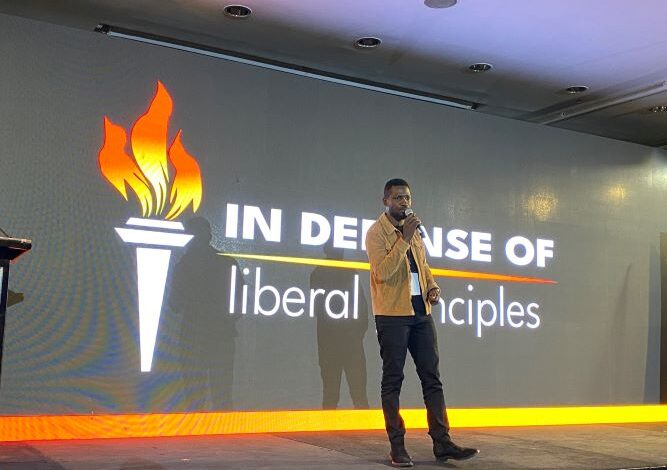In Chile, NUP Leader Bobi Reaffirms Commitment To LGBTQ+ Rights
Agencies| FileFactsUg

The National Unity Platform (NUP) principal Robert Kyagulanyi Ssentamu aka Bobi Wine has reaffirmed his commitment to promoting and defending lesbian, gay, bisexual, transgender, queer/questioning Plus (LGBTQ+) community rights.
The renowned outspoken Bobi re-echoed his pledge on November 27th, 2024, during the “In Defence of Liberal Principles” conference in Santiago, Chile whose overarching compass is around devising workable ways of defending diverse liberal principles, including the rights of vulnerable groups such as LGBTQ+ individuals.
Bobi Wine’s commitment is in line with the Declaration for Political Action 2023, which emphasizes respect for individual dignity and rejects discrimination and violence. The declaration supports equal rights and opportunities for all, regardless of identity, ethnicity, or sexual orientation.
“Each individual has the right to pursue his or her own life path. The State should not interfere but rather create conditions to guarantee respect for the dignity of every person and equally before the law,” the network of which NUP is a vanguard member in Africa said under their principle 8.
They specifically affirm, “We support and defend the rights of those who are vulnerable to discrimination, whether they are members of ethnic or indigenous groups, people with disabilities, children, the elderly, and LGBTQ+ people, among others. We reject all forms of discrimination and violence against them.”
At the conference, David Lewis Rubongoya, the NUP’s Secretary General, accompanied Bobi Wine.
Organized by the Latin American Liberal Network (Relial) which brings together liberal organizations in the region and beyond, the Chile event focused on promoting liberal principles, with LGBTQ+ community rights taking center stage. Bobi Wine’s pledge demonstrates his willingness to defend the rights of marginalized communities.
“I want to be known as a leader who is respectful and inclusive of everybody,” Bobi Wine stated in a BBC interview, a couple of months ago. His commitment to promoting LGBTQ+ rights has been consistent, despite facing criticism and backlash from some quarters.
Back home in Uganda where he seeks to become a president, the LGBTQ+ community faces significant challenges, including harsh punishments to both practitioners and promoters of the LGBTQ+ rooted in the Anti-Homosexuality Act, which was passed to be widely condemned by human rights organizations and Western governments.
Bobi Wine’s pledge to defend LGBTQ+ rights has been welcomed by activists, especially in Western Governments, but denounced by the populace locally.
During a plenary session, a section of MPs led by Busia Municipality’s Geoffrey Macho (Independent) raised the matter in Parliament, tasking the LoP Joel Ssenyonyi who is the NUP spokesperson to “tell Parliament the NUP position on homosexuality.”
Macho stated, “We are not ready to accept some leaders of opposition parties to promote homosexuality against the Anti-Homosexuality law we passed as Parliament.”
Instead of responding directly to Macho’s question, LoP Ssenyonyi deflected it, accusing Macho of possibly being under the influence of substances.
Ssenyonyi said, “As we are being checked on the parliamentary gate, I request that MPs be checked to see whether they are high on other substances.” This response was seen as evasive, as it did not address the issue at hand.
Indeed Ssenyonyi’s response limes well with his boss Bobi’s evasiveness on the issue of LGBTQ+ whenever he is asked to address it locally.
Despite his commitment to promoting LGBTQ+ community rights being recognized internationally with awards, and being hailed as a champion of their rights, Bobi keeps on confusing Ugandans with the NUP leader always deleting social media posts about the issue he uses to appeal to the international community.
As Uganda prepares for future elections, Bobi Wine’s stance on LGBTQ+ rights is likely to be a major issue. His commitment to defending the rights of marginalized communities will be closely watched by activists, human rights organizations, and the international community.
